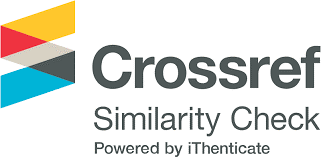FPGA-Based Space Vector Modulation of an Indirect Matrix Converter
DOI:
https://doi.org/10.18618/REP.2019.1.0025Keywords:
AC-AC Conversion, FPGA, Indirect Matrix Converter, Matrix ConvertersAbstract
The insertion of powers sources onto the grid require an energy processing stage between generator and electrical grid, which adapts amplitude and frequency levels for alternating current (AC) quantities. The Indirect Matrix Converter is a candidate for such operation, although one of the greatest challenges of the topology lies in a way to command the switches while controlling the structure power-flow, as well as the synchronism between source–converter and converter–grid. Hence this paper presents a different view on the converter modelling and proposes a FPGA-based method to perform the Space Vector Modulation (SVM) and synchronism algorithms minimizing the resource consumption, focusing on digital processing algorithms and resource sharing to reduce resource consumption and the number of multipliers employed, ideal for implementation in low-cost FPGAs. Experimental results are shown using a prototype, demonstrating the efficacy of the implementation and verifying the converter behaviour.
Downloads
References
H. Wang, F. Blaabjerg, K. Ma, R. Wu, "Design for reliability in power electronics in renewable energy systems 2013; status and future", in 4th International Conference on Power Engineering, Energy and Electrical Drives, pp. 1846-1851, May 2013.https://doi.org/10.1109/PowerEng.2013.6889108
T. Friedli, J. W. Kolar, "Comprehensive comparison of three-phase AC-AC Matrix Converter and Voltage DC-Link Back-to-Back Converter systems", in The 2010International Power Electronics Conference - ECCEASIA -, pp. 2789-2798, June 2010.https://doi.org/10.1109/IPEC.2010.5543814 DOI: https://doi.org/10.1109/IPEC.2010.5543814
T. K. Jappe, Conversores Matriciais Indiretos Alimentados em Corrente, Ph.D. thesis, INEP/UFSC,2015.
F. Schafmeister, Indirekte Sparse Matrix Konverter, Ph.D. thesis, ETH Zurich, 2008.
J. Schonberger, T. Friedli, S. D. Round, J. W. Kolar,"An Ultra Sparse Matrix Converter with a Novel Active Clamp Circuit", in 2007 Power Conversion Conference- Nagoya, pp. 784-791, April 2007.https://doi.org/10.1109/PCCON.2007.373056 DOI: https://doi.org/10.1109/PCCON.2007.373056
A. Formentini, A. Trentin, M. Marchesoni,P. Zanchetta, P. Wheeler, "Speed Finite Control Set Model Predictive Control of a PMSM Fed by Matrix Converter", IEEE Transactions on Industrial Electronics, vol. 62, no. 11, pp. 6786-6796, Nov 2015.https://doi.org/10.1109/TIE.2015.2442526 DOI: https://doi.org/10.1109/TIE.2015.2442526
O. Aydogmus, E. Deniz, "Design and implementation of two-phase permanent magnet synchronous motor fed by a matrix converter", IET Power Electronics, vol. 10, no. 9, pp. 1054-1060, 2017.https://doi.org/10.1049/iet-pel.2016.0705 DOI: https://doi.org/10.1049/iet-pel.2016.0705
J. Zhang, L. Li, L. Zhang, D. G. Dorrell, "Hysteresis band current controller based field-oriented control for an induction motor driven by a direct matrix converter", in IECON 2017 - 43rd Annual Conference of the IEEE Industrial Electronics Society, pp. 4633-4638, Oct 2017.https://doi.org/10.1109/IECON.2017.8216798 DOI: https://doi.org/10.1109/IECON.2017.8216798
A. Saygin, A. Aksoz, E. N. Yilmaz, "A different model of WECS connected to smart grid through matrix converter", in 2016 4th International Istanbul Smart Grid Congress and Fair (ICSG), pp. 1-5, April 2016.https://doi.org/10.1109/SGCF.2016.7492419 DOI: https://doi.org/10.1109/SGCF.2016.7492419
A. Basak, K. Mukherjee, P. Syam, "Effect of Matrix Converter on the speed control scheme of a grid connected Doubly-Fed induction generator system", in 2016 2nd International Conference on Control, Instrumentation, Energy Communication (CIEC), pp.319-323, Jan 2016.https://doi.org/10.1109/CIEC.2016.7513815 DOI: https://doi.org/10.1109/CIEC.2016.7513815
E. F. C. Grabovski, Modulation and SynchronizationAlgorithms for FPGA-Driven Indirect Matrix Converters, Master's thesis, INEP/UFSC, 2018.
J. Zhang, M. Su, W. Xiong, Y. Sun, X. Hou, X. Li, “Carrier-based modulation strategy of indirect matrix converters for common-mode voltage reduction”, in 2017 IEEE 3rd International Future Energy Electronics Conference and ECCE Asia (IFEEC 2017- ECCE Asia), pp. 534-538, June 2017.https://doi.org/10.1109/IFEEC.2017.7992095 DOI: https://doi.org/10.1109/IFEEC.2017.7992095
B. Wang, G. Venkataramanan, "A carrier based PWM algorithm for indirect matrix converters", in 2006 37thIEEE Power Electronics Specialists Conference, pp. 1-8, June 2006.https://doi.org/10.1109/pesc.2006.1712191 DOI: https://doi.org/10.1109/pesc.2006.1712191
Q. H. Tran, N. V. Nguyen, H. H. Lee, "A carrier-based modulation method to reduce switching losses for indirect matrix converters”, in IECON 2014 - 40thAnnual Conference of the IEEE Industrial Electronics Society, pp. 4828-4833, Oct 2014.https://doi.org/10.1109/IECON.2014.7049232 DOI: https://doi.org/10.1109/IECON.2014.7049232
J. E. Volder, "The CORDIC Trigonometric Computing Technique", IRE Transactions on Electronic Computers, vol. EC-8, no. 3, pp. 330-334, Sept 1959.https://doi.org/10.1109/TEC.1959.5222693 DOI: https://doi.org/10.1109/TEC.1959.5222693
R. Teodorescu, M. Liserre, P. Rodriíguez, Grid Converters for Photovoltaics and Wind Power Systems, Wiley, 2011.https://doi.org/10.1002/9780470667057 DOI: https://doi.org/10.1002/9780470667057
Downloads
Published
How to Cite
Issue
Section
License
Copyright (c) 2018 Revista Eletrônica de Potência

This work is licensed under a Creative Commons Attribution 4.0 International License.















